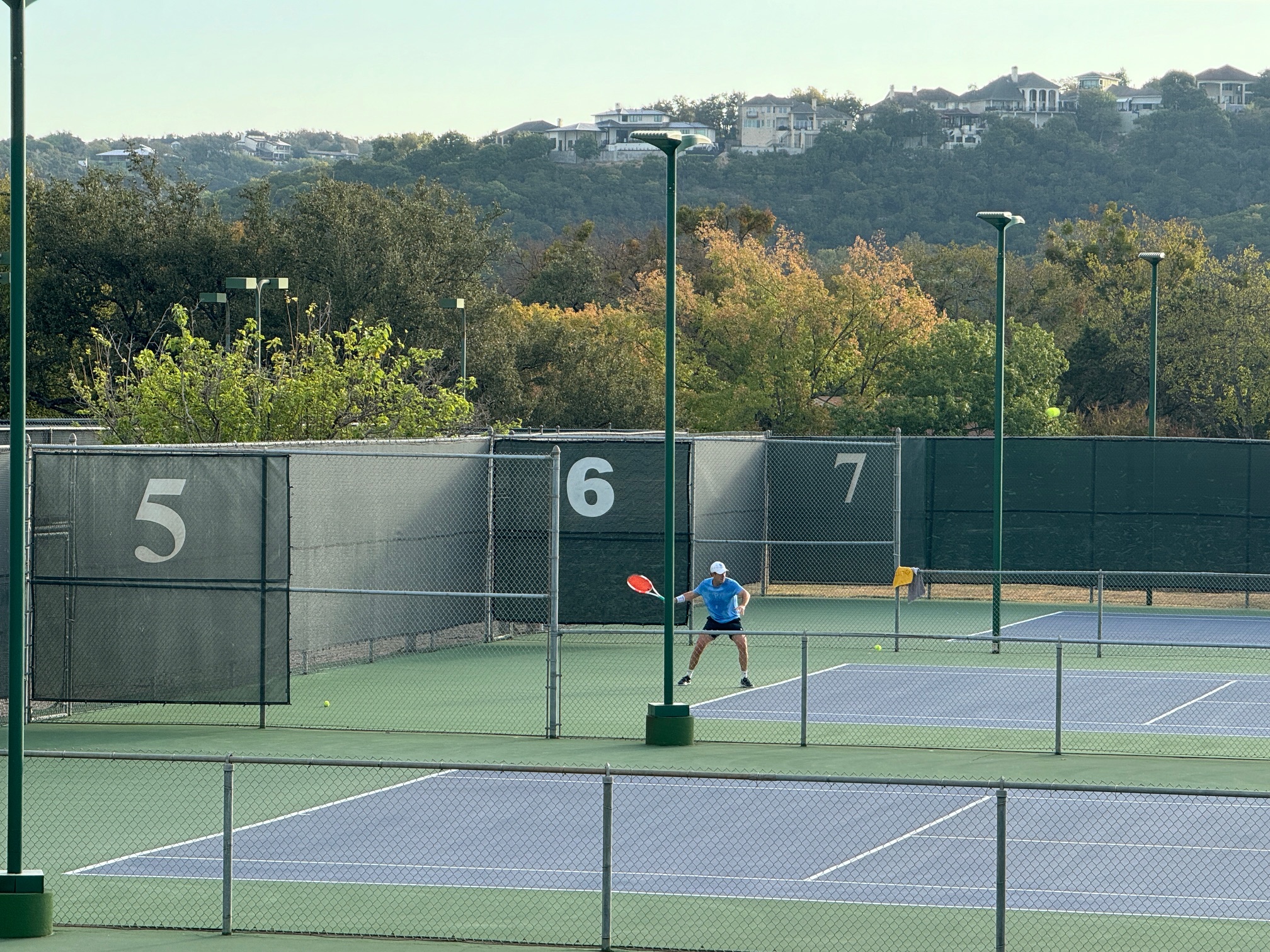S.C.F. Peile’s 1887 book, ‘Lawn Tennis as a Game of Skill‘ is a veritable time capsule recording how the rules of lawn tennis were understood and applied in the earliest days of the sport. The chapter “Courts, Nets, and Appurtenances” details how to configure and construct a tennis court. It seems odd until you remember that the majority of initial participants in those early days of lawn tennis had to lay out their own courts before playing the game.
Peile’s prescribed ideal net height at the posts and the center are the precise dimensions currently documented in the ITF Rules of Tennis. However, his thoughts on net height reflect that deviations from the standard were fairly common. Never one to withhold his opinion, Peile regarded variations in the net height as “utterly destructive of good play.”
‘Lawn Tennis as a Game of Skill‘‘ includes the author’s recommendations on how to anchor the net posts. He also endorses a British-patented wheel and ratchet system to maintain the proper tension of the net cord. That recommendation prompted R.D. Sears, the editor of the American edition and US National Champion at the time, to observe that Dr. J Dwight invented a similarly excellent mechanism on this side of the pond.
Peile also shares his thoughts on equipment in this chapter. In one of many examples of terminology that will be alien to modern tennis players, he uses the word “bat” rather than racquet. While the author declines to endorse any particular manufacturer, he shares his personal preference for a heavy “plain-strung bat.” Sears took exception to that recommendation as well.
The author also expressed a strong preference for Ayres’ white balls. When justifying that opinion, it revealed that red balls and a combination of red and white balls were also common at the time. The Ayres’ ball was also the official ball used at the US National Championships, so Sears did not deem editorial comment necessary on that point.
Another aspect of early tennis court configuration that has faded from common usage is the absence of a net tape. Instead, Peile prescribes an iron fork that was driven into the ground to hold the center of the net down to the proper height. That mechanism is a little bit sturdier than what is used on modern tennis courts. At that point in tennis history, players could legitimately hurt themselves running into the net tape.
‘Lawn Tennis as a Game of Skill‘‘ tells the origin story of how court specifications made the leap from instructions provided in the early tennis “kits” to some semblance of standardization. Peile reveals the variation in court construction that eventually led to the recognition that standardization was needed. It was one of many factors that eventually led to the creation of the International Lawn Tennis Federation.
- Lawn Tennis as a Game of Skill, S.C.F Peile, 1887.
- The Game of Lawn Tennis with the Rules of the Marylebone and All England Clubs, by “Cavendish,” Eighth Edition, 1888.
- ITF Rules of Tennis, International Tennis Federation, 2023



